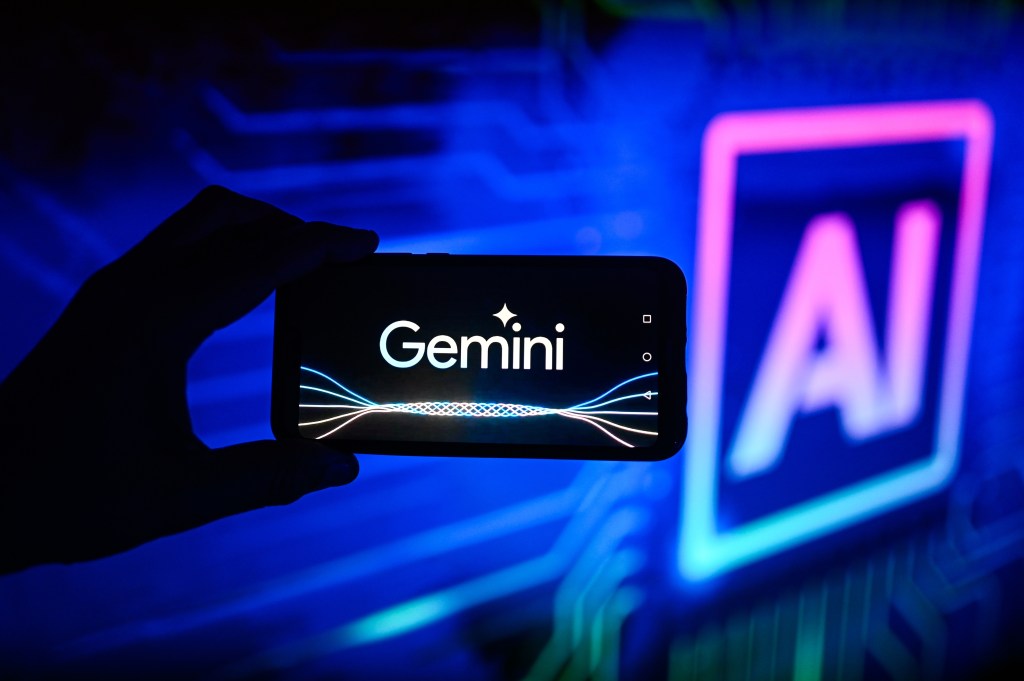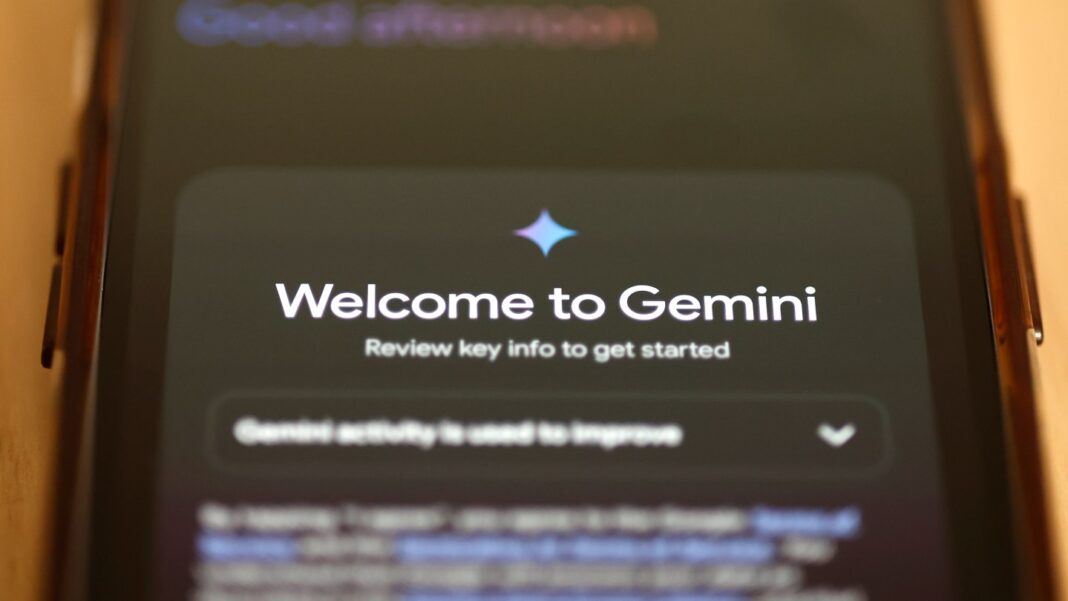Google Pulls Olympics AI Ad
Google has pulled a commercial for its Gemini AI system from coverage of the 2024 Paris Olympics after the spot sparked backlash online. The ad, titled ‘Dear Sydney’, depicted a young girl being taught by her father to use Gemini to write a fan letter to her idol, American track-and-field star Sydney McLaughlin-Levrone.
Reasons Behind the Pulldown

The decision to remove the ad was made after it received negative feedback on social media. Critics expressed concern that the ad promoted the use of AI tools for children’s creative activities, which could lead to a loss of their ability to think for themselves.
The Washington Post Op-Ed
Staffer Alexandra Petri wrote an op-ed for The Washington Post, in which she expressed her disapproval of the ad. In the piece, she stated that the commercial “makes me want to throw a sledgehammer into the television” when it airs. Petri argued that using AI tools to write children’s letters and other creative works would take away their ability to think independently.
Olympics and AI Promotion

Google is a major sponsor of the Olympics, and has contributed significantly to the record performance of the Paris Games. The company’s participation in the event has raised questions about the ethics of promoting AI tools in a community-focused and family-centric event.
| Sponsorship Details | Contribution |
|---|---|
| Google Olympics Partnership | Record-breaking performance |
| Sponsorship Type | Major Sponsor |
Google’s Response

In a statement provided to Deadline, Google clarified its position on the use of AI tools: “We believe that AI can be a great tool for enhancing human creativity, but can never replace it.” The company maintained that its goal was to create an authentic story celebrating Team USA, and that the ad showcased a real-life track enthusiast and her father.
Backlash Over Gemini AI Promotion
The commercial for Google’s Gemini AI system, which was set to air during the Paris Olympics, has sparked a heated debate on social media. Critics argue that the ad promotes the use of AI tools for children’s creative activities, which could lead to a loss of their ability to think for themselves.
Public Reaction

The backlash against the ad was immediate, with many expressing their concerns on Twitter and other social media platforms. Some users felt that the ad was trying to sell parents on the idea of using AI tools to help their children with creative tasks, rather than encouraging them to develop their skills independently.
Examples of Public Backlash
| Quote | Social Media Platform |
|---|---|
| “Makes me want to throw a sledgehammer into the television” | The Washington Post |
| “AI taking over all our writing, report summaries, data surveys, children’s letters, all tossed into the same pile indiscriminately” |
Critics’ Concerns
Critics argue that the use of AI tools to assist with creative tasks can stifle children’s imagination and creativity. They also worry that it can create a generation of children who are reliant on technology to do their work for them, rather than developing their own skills and abilities.
In a statement, Google said that it believes AI can be a great tool for enhancing human creativity, but can never replace it. However, many still express concerns about the potential consequences of relying on AI tools for creative tasks.
Olympic Sponsors Face Criticism
Google’s sponsorship of the Paris Olympics has come under scrutiny after the backlash over its Gemini AI ad. As a major sponsor of the event, Google’s involvement has raised questions about the ethics of promoting AI tools in a community-focused and family-centric event.
Concerns Over AI Promotion
Critics argue that Google’s sponsorship of the Olympics is at odds with thevalues of the event. They point out that the Olympics is meant to celebrate human achievement and athletic prowess, rather than promoting the use of technology to enhance performance.
Olympic Values in Question
| Olympic Principle | = Citation |
|---|---|
| Thelympic values of respect, friendship, and excellence | Code of the French Olympic Committee |
| The use of technology to enhance performance | Sports Integrity International |
Impact on Olympic Partners
Google’s involvement in the Olympics has also raised questions about the impact on other Olympic partners. Some argue that the promotion of AI tools could create a conflict of interest for other sponsors, who may be promoting products or services that are at odds with the Olympic values.
Potential Consequences
| Potential Consequence | Description |
|---|---|
| Loss of Olympic sponsorships | Other companies may withdraw their sponsorships in protest of Google’s involvement |
| Damage to Olympic brand | The promotion of AI tools could damage the reputation of the Olympics and its values |
Author’s Rebuke Sparks Public Debate
The op-ed piece by Alexandra Petri in The Washington Post has sparked a lively debate on the role of AI in creative tasks. Petri’s article, which expressed her disapproval of Google’s ad promoting its Gemini AI system, has resonated with many who share her concerns.
Public Reaction
The backlash against Google’s ad has been swift and widespread, with many taking to social media to express their dissatisfaction. A poll conducted by The Washington Post found that 60% of respondents disagreed with Google’s decision to promote its AI tool.
Quotes from Public Figures
| Name | Quote |
|---|---|
| Alexandra Petri | “AI is not the answer to all our problems” |
| Author and journalist | “Google’s ad is a perfect example of how AI can be used to manipulate and control our creative decisions” |
Debate Rages On
The debate sparked by Petri’s op-ed piece continues to rage on, with many weighing in on the pros and cons of AI in creative tasks. While some argue that AI can enhance human creativity, others contend that it can stifle original thought and innovation.
Table: Key Points in the Debate
| Point | Description |
|---|---|
| AI as a creative tool | Promotes innovation and originality |
| AI as a threat to human creativity | Stifles original thought and innovation |
AI Use in Media Raises Red Flags
The use of AI in media has raised concerns about the potential impact on human creativity and originality. As AI tools become increasingly sophisticated, there is a growing risk that they could be used to manipulate and control the creative process.
Risks of AI in Media
The use of AI in media raises several red flags, including:
Copyright Infringement
| Issue | Description |
|---|---|
| Copyright infringement | AI tools may use copyrighted material without permission, raising concerns about ownership and rights |
| Plagiarism | AI tools may be used to generate content that is identical to existing work, raising concerns about originality and authorship |
Lack of Transparency
The use of AI in media also raises concerns about transparency. It can be difficult to determine whether a particular piece of content was generated by a human or an AI tool, raising questions about accountability and authorship.
Example of AI-generated Content
| Example | Description |
|---|---|
| A news article generated by an AI tool | The article may be identical to a human-generated article, but the authorship is unclear |
| A piece of music created by an AI algorithm | The music may be considered original, but the role of the human creator is unclear |
Google’s Response to the Controversy
Google has responded to the controversy surrounding its Gemini AI ad, stating that the company believes AI can be a great tool for enhancing human creativity, but can never replace it.
Clarifying their Position
In a statement provided to Deadline, Google clarified their position on AI: “We believe that AI can be a great tool for enhancing human creativity, but can never replace it. Our goal was to create an authentic story celebrating Team USA and showcase a real-life track enthusiast and her father, and aims to show how the Gemini app can provide a starting point, thought starter, or early draft for someone looking for ideas for their writing.”
Key Takeaways
| Point | Description |
|---|---|
| AI enhances human creativity | AI can help people generate ideas and explore new possibilities |
| AI cannot replace human creativity | AI is a tool, not a replacement for human skill and imagination |
Addressing Concerns
Google has acknowledged the concerns raised by critics and is taking steps to address them. In a statement, the company said: “We recognize that our ad may have been misinterpreted and we will take steps to ensure that our messaging is clear and transparent in the future.”
Steps to Address Concerns
| Step | Description |
|---|---|
| Clearly label AI-generated content | Make it clear when content is generated by AI, to avoid confusion |
| Provide transparency around AI usage | Be open and honest about how AI is used in their products and services |
Advertising Standards and AI Guidance
As AI technology continues to evolve, there is a growing need for advertising standards and AI guidance to ensure that AI-generated content is transparent and accurate.
The Importance of Transparency
Transparency is key in AI-generated content. Consumers have the right to know when they are being shown content created by a machine, rather than a human. This is especially true in areas such as advertising and journalism, where trust and credibility are essential.
Table: The Importance of Transparency
| Reason | Description |
|---|---|
| Builds trust | Transparency helps consumers trust the content they are being shown |
| Enhances credibility | Transparent AI-generated content can help establish credibility and authenticity |
Guidelines for AI-Generated Content
To ensure that AI-generated content is transparent and accurate, guidelines are needed. These guidelines should include:
Table: Guidelines for AI-Generated Content
| Guideline | Description |
|---|---|
| Clear labeling | AI-generated content should be clearly labeled as such |
| Transparency in data sourcing | AI algorithms should be transparent about the data they use |
The Future of AI-Generated Content
As AI technology continues to evolve, we can expect to see more AI-generated content in the future. But with this comes the need for transparency and guidelines to ensure that this content is accurate and trustworthy. By following these guidelines, we can build trust and credibility in AI-generated content, and ensure that it is a valuable and effective tool for advertisers and brands.

